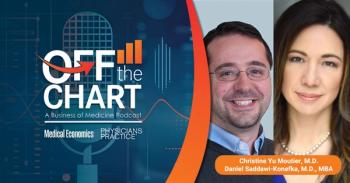
Four considerations for physician disability policies
Protecting the investment you’ve made in your career and your ability to earn income is essential.
Any good financial plan includes disability income insurance. This is true for everyone, but it is especially true for physicians. Protecting the investment you’ve made in your career and your ability to earn income is essential, and disability insurance helps protect at least a portion of that income, should something happen to you.
Personal disability is certainly on the minds of physicians. According to a recent
Before getting a disability policy, it is important to acknowledge that there is more to disability insurance than meets the eye. Of course, cost and coverage of the policy are key considerations, and the contractual definitions of the policy have a huge impact on whether you can collect benefits if the need arises, and if so, how much.
As a medical professional considering a disability policy, these four questions can help you differentiate between the many various policy definitions in the marketplace today and make the best choice:
1. How many ways are there to qualify for disability benefits?
Benefits may be payable for total disability, and if included in the policy, partial or residual disability. Typically, to be considered totally disabled, you must be unable to perform all the “substantial and material” duties of your “regular occupation.” Remember that most physicians have more than one duty, and therefore, would need to be unable to perform all of them to qualify for total disability. Look for a policy that will allow you to qualify as totally disabled, even if you can still perform some of your substantial and material duties.
2. What happens if I can do some, but not all, of my “regular” duties?
Let’s use an example: Say a tremor prevents you from performing procedures, but you can still treat patients in your office. You are unlikely to qualify for total disability; instead, you may qualify as partially disabled, but only if you continue to work. Consider if this is what you want, or if continuing to see patients and not perform procedures would even be feasible for you and your practice. What if 60% of your revenue comes from procedures that you can no longer perform?
Ask if a policy has another way to qualify as totally disabled, such as the option to stop working and receive your full benefits, or to continue working, even in a different profession, and be able to collect partial benefits to help make up for any income loss.
3. What happens if I cannot do any of my “regular” duties?
Some policies pay full benefits if you are totally disabled from your regular occupation but choose to work in a different profession. Others pay to make up for a salary shortfall you may experience in your new profession.
4. What happens if I can’t do my job, my “regular duties”, as a physician, but I can still work doing something else?
With ‘Group’ or Association disability coverage, for example, you may not be considered totally disabled if you can work in any job, even one outside the medical field. Be sure to choose a definition that looks at the duties of your regular occupation at the time a disability begins to ensure your claim is evaluated based on your ability to perform your “substantial and material” duties, rather than your ability to work doing any job duties.
In the end, the fine print matters a lot to your long-term financial security and professional choices if you were to become disabled. Think through different possible scenarios and talk to a financial professional who can help answer your questions and determine the definitions and policies that are right for you.
About the Author
Newsletter
Optimize your practice with the Physicians Practice newsletter, offering management pearls, leadership tips, and business strategies tailored for practice administrators and physicians of any specialty.








